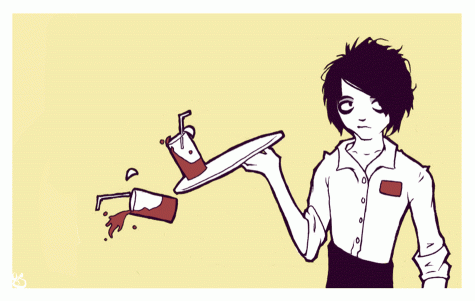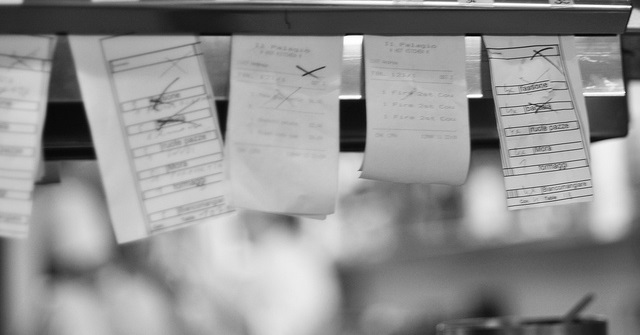1) “You’re gonna hate me…” – Never preface your special requests or dietary issues with this phrase. Reverse psychology doesn’t work on waiters. We wrote the book on psychological warfare. Sorry to say, but we will probably hate you anyway despite having been warned.
2) “You call that a drink?” – Waiters and bartenders don’t determine the pour levels of the drinks they serve, owners do. If you are disappointed with the size of your cocktail, take it up with management. Or just drink the damn thing and order another one.
3) “I might lick the plate” – Go ahead. Lick it. We don’t care. We just want to take your plate away. We would prefer it not be slobbered on, but can’t we just clear your table without being bombarded with uncomfortable attempts at irony?
4) “You’re going to have to wheel us out of here” – You think you ordered a lot of food, but you really didn’t. You are trying to be funny, but you really aren’t. In a perfect world, we would wheel you out… of our section.
5) “Do you have any low-calorie desserts?” – If a guest says #4, they will probably also deliver this zinger. We’ll play along, but only because we don’t want to embarrass you in front of your family and friends.
6) “I like it still mooing” – There are standard temperatures to order your meat for a reason. Stick to the script. Just ask for it rare if you like it rare, comedy-boy.
7) “How do you stay so thin?” – We work without food or water for over eight hours a night. We spend the entire time fetching you things. Just because there is delicious food served here doesn’t mean we get to eat any of it.
8) “What else do you do besides this?” – We realize you can’t imagine our job as a legitimate career, but these days it is. Of course, there are still artistic people moonlighting in restaurants, but it’s a much more demanding and lucrative profession than ever before.
9) “We’re easy!” – Nothing comes easy in restaurants—trust me—and anyone who feels the need to assure their waiter that they are low-maintenance, probably isn’t.


